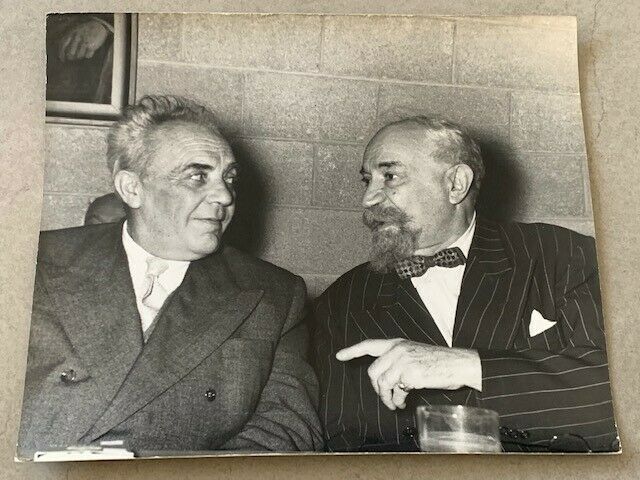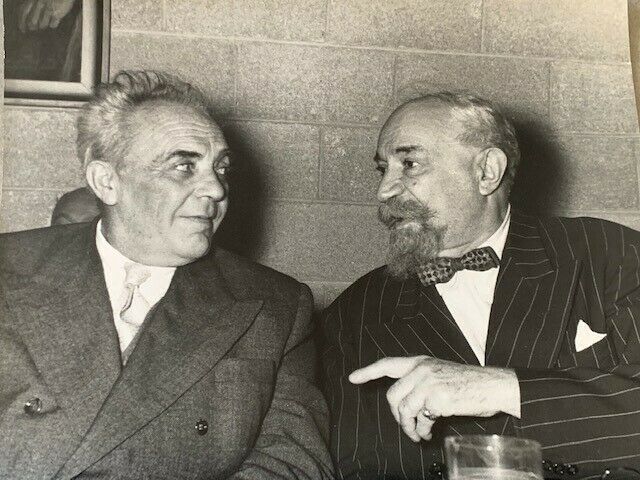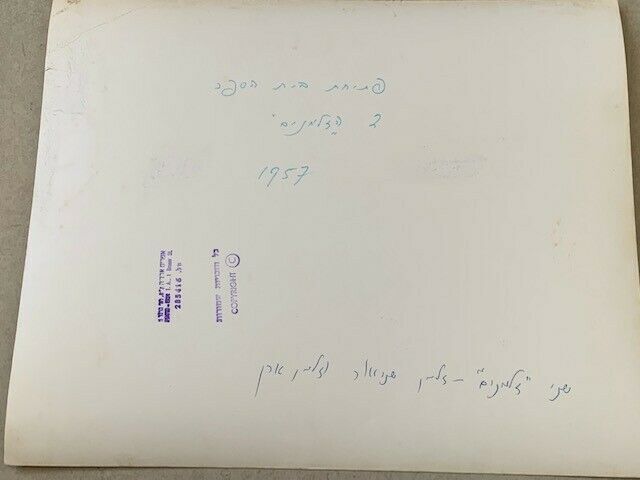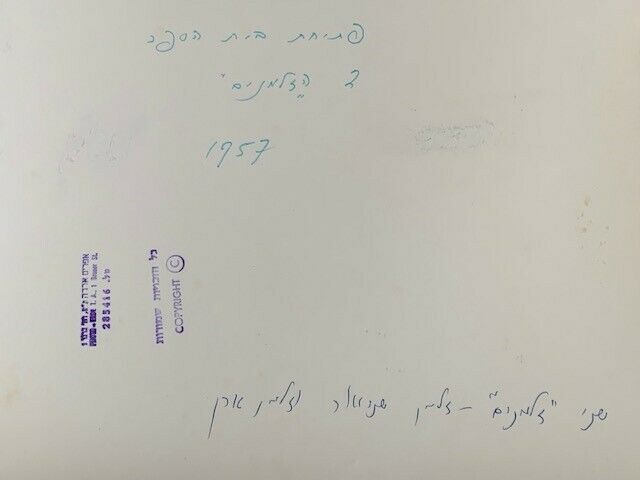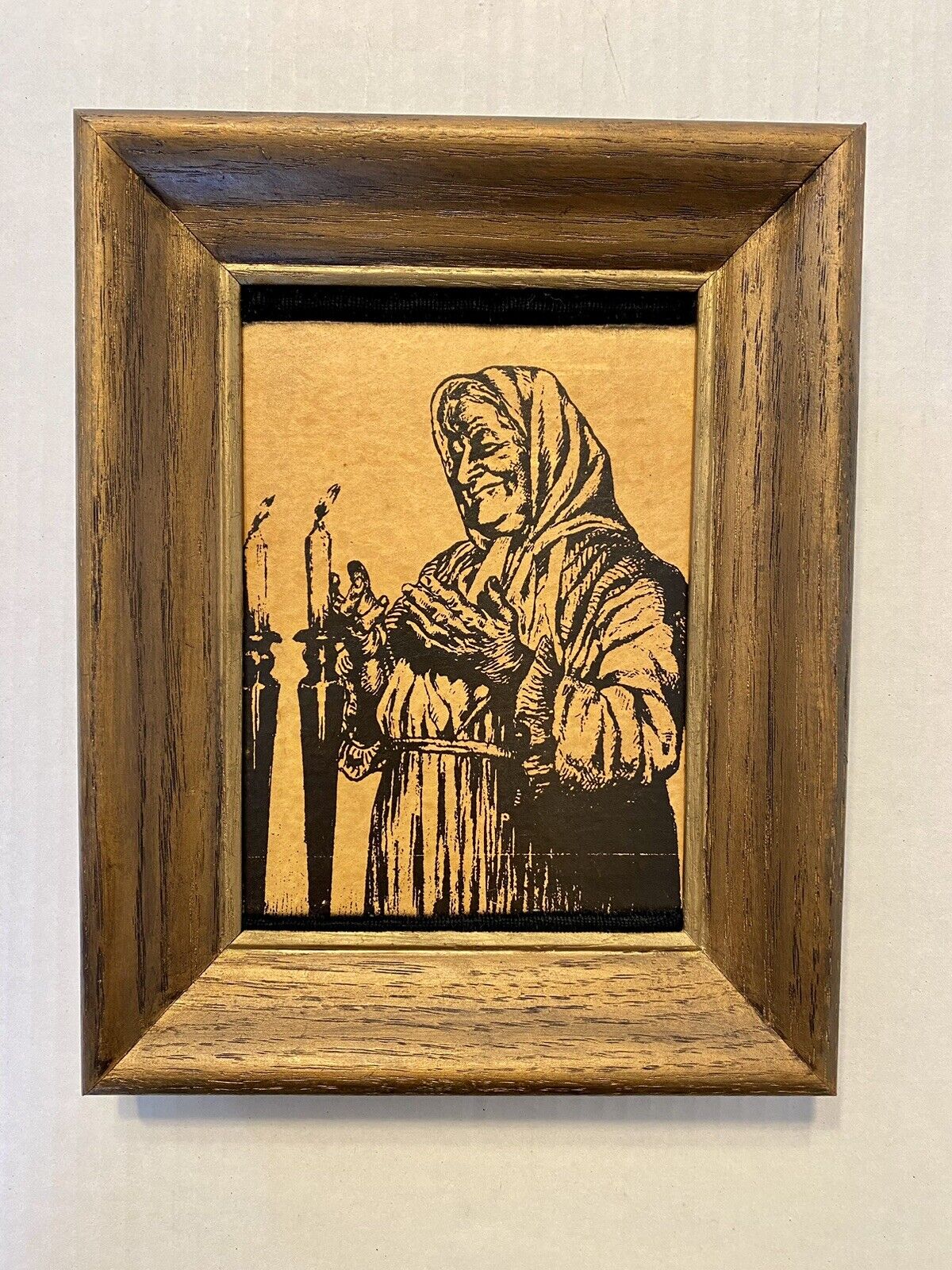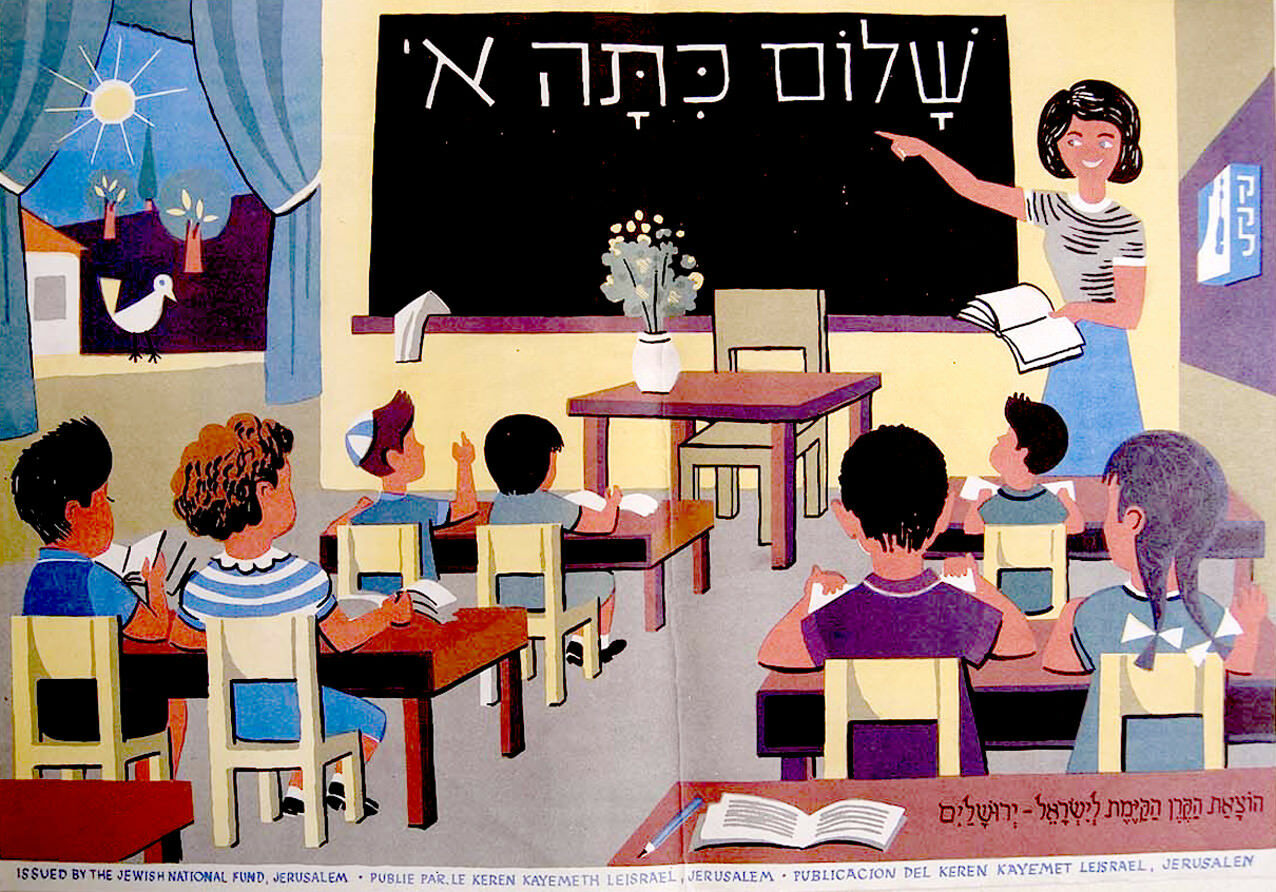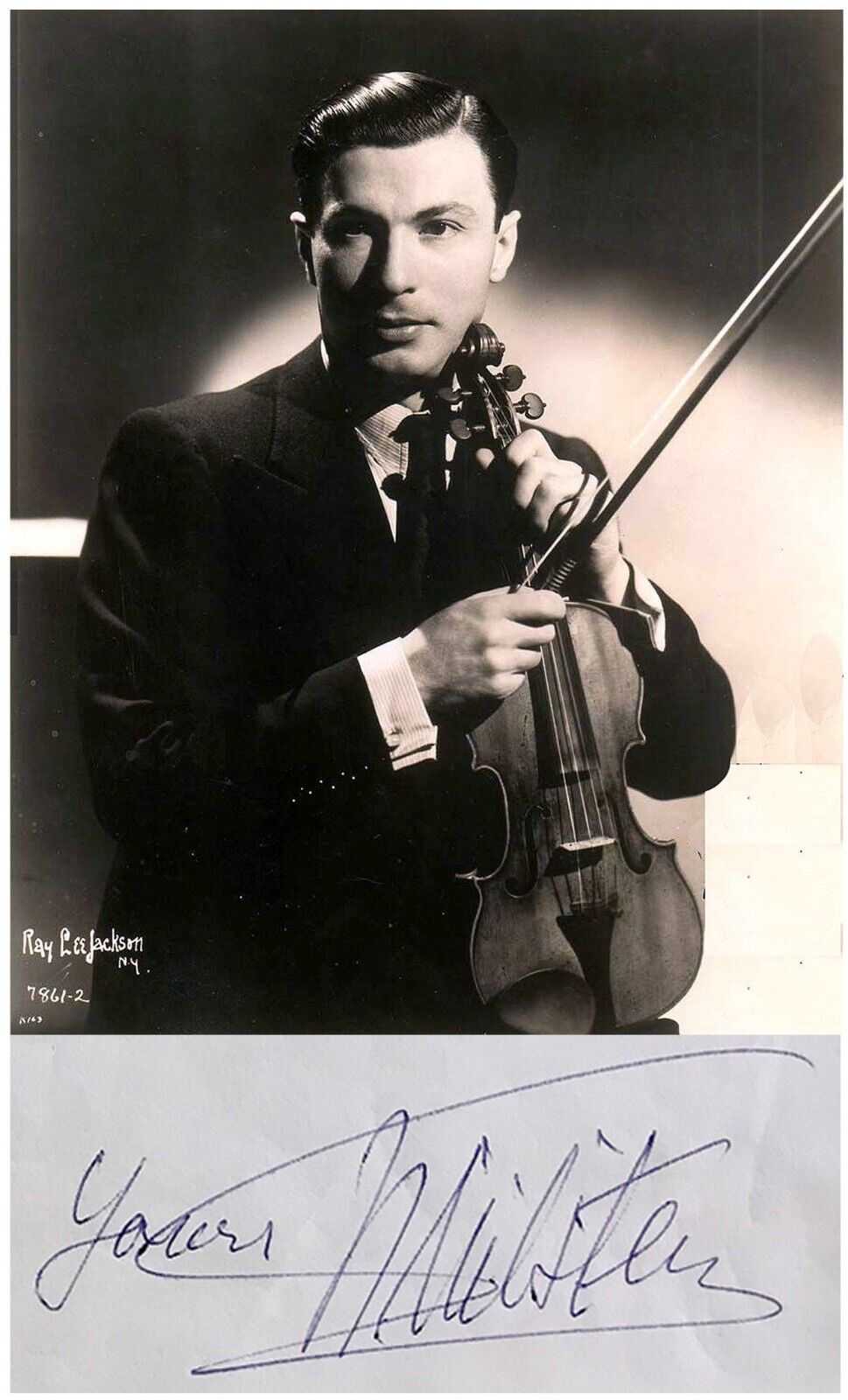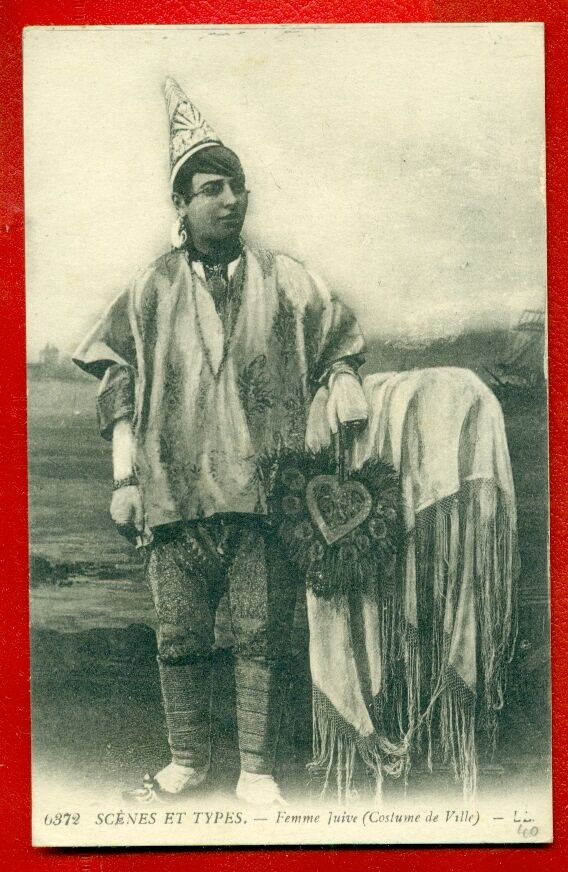-40%
Jewish Israel Zionism Photo Zalman Shneour and Zalman Aran. Ephraim Erde 1947
$ 23.76
- Description
- Size Guide
Description
Photo (black & white) ofZalman Shneour and Zalman Aran at the opening of the "zalmanim School".
photographer: Ephraim Erde
Size: 30*25 cm
Year: 1947
Zalman Shneour (1887-1959)
Was a prolific Yiddish and Hebrew poet and writer. He was nominated for the Nobel Prize in Literature. Shneour was born in Shklov (Škłoŭ) in Belarus (then part of the Russian Empire) in 1887. His parents were Isaac Zalkind and Feiga Sussman. At age 13, he left for Odessa, the center of literature and Zionism during this time. Shneour moved to Warsaw in 1902, and was hired by a successful publishing house. He then moved to Vilnius in 1904, where he began to publish his first book and a collection of stories. These poems were extremely successful, and many editions were published. In 1907, Shneour moved to Paris to study Natural Sciences, Philosophy, and Literature, at the Sorbonne. He traveled throughout Europe from 1908 to 1913, and even visited North Africa. At the start of World War I, Shneour was in Berlin. During the years of the war, he worked in a hospital and studied at the University of Berlin. Shneour returned to Paris in 1923. He stayed there until 1940, when Hitler's troops invaded France. Shneour then fled to Spain, and from there he went to New York City in 1941. He died in 1959 in New York
.
He is remembered among lovers of Yiddish songs for his expression of longing and lust, “Tra-la-la-la,” known as Margaritkelekh, Daisies. Artists such as Chava Albershteyn have recorded it
.
Zalman Aran (1899-1970)
Was a Zionist activist, educator and Israeli government minister. Zalman Aharonowitz (later Aran) was born in Yuzovka in the Yekaterinoslav Governorate of the Russian Empire (now Donetsk, Ukraine), and received a religious education in a heder. He later studied agriculture in Kharkov.[1] In his youth, he was active in Tze'irei Zion, a Zionist youth movement]. In 1917 he became a member of its Self-Defense Organization Committee. He worked as a teacher and a statistician from 1918 to 1923. In 1920, after the party split, he joined the Zionist Socialists. He was a member of its Central Committee from 1924 to 1925
.
In 1926, he immigrated to Mandatory Palestine, where he joined the Ahdut HaAvoda Party. He worked in building and road construction.
Ephraim Erde
(1905-1986)
An Israeli photographer, the pioneers of photography in Tel Aviv, the side Rudy Weissenstein and the successors of Avraham Soskin. Ephraim Arda was born in a village in eastern Galicia (later on the border between Ukraine and Poland). In Hashomer Hatzair's training in Poland, he met a photographer in 1929, who taught him the basics of photography
.
In 1933 he immigrated to Eretz Israel, first settling in Kibbutz Ein Hamifratz and from there he moved to Tel Aviv. In the first period, he photographed residents on the streets of Tel Aviv, then opened a studio called "Photo Eden" on Lilienblum Street, near Cinema Eden, and then, in the 1940s, opened "Photo Arda" at 55 corner of 1 Brenner Street (next to Whitman Ice Cream). A studio that also included a store for photography, and was a well-known Tel Aviv institution
.
Many of the photographs were taken in the courtyard of the house, where there was a large mulberry tree that served as a background. Arda's photographs dealt with various and varied subjects: studio portraits, personalities and buildings, Eretz Israel and Tel Aviv, weddings, reproductions for painters, sports and dance, both in the private and institutional fields (for youth movements, sports associations and more)
.
Feel freee to contact for any question and many more items.
[30]
